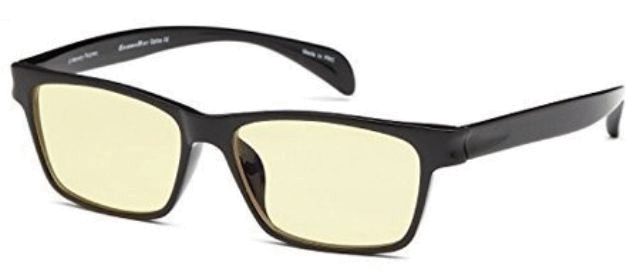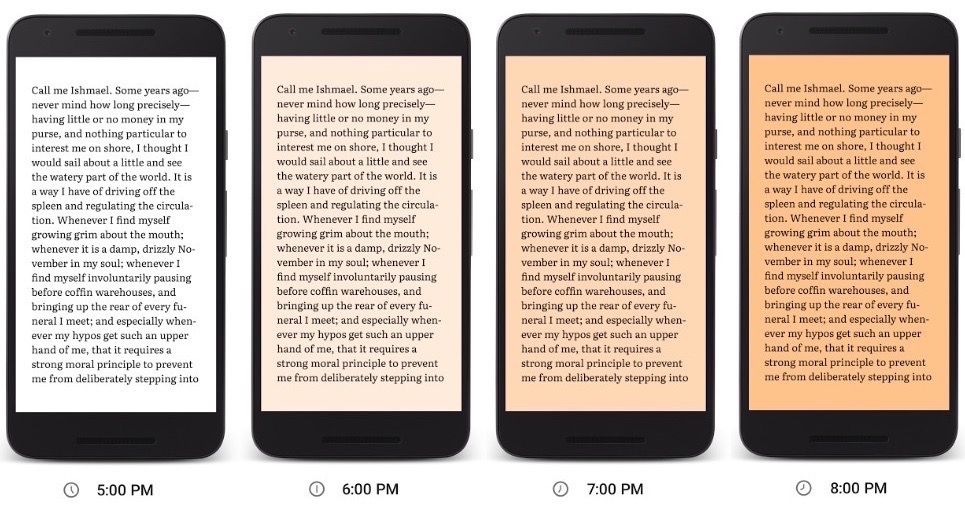Blue Light Blocking
Blue Light Blocking Filters have two general applications:
- Glasses – Some have suggested that too much exposure to blue light has the potential to damage Photoreceptors, but there is little research to support this. While UV light is known to have exactly this effect, it is effectively blocked by the atmosphere and by human lenses, so does not pose a significant risk to our Photoreceptors. Others have reported that blue light worsens eye strain, especially when looking at digital displays for long periods of time, but this is also largely unsubstantiated. Regardless, glasses that include a blue-light blocking filter, including Gaming Glasses, are extremely common from Optometrists.

- Computer Screens – Melanopsin has its Peak Sensitivity at 480nm, so is most sensitive to blue light. Because Melanopsin is responsible for Circadian Rhythm, using the blue part of Daylight as an input signal, excitation of blue light from devices, namely computer/phone screens can excite Melanopsin and disrupt someone’s Circadian Rhythm. A solution is to decrease or eliminate the blue light that is emitted from a screen during night time hours, so Melanopsin will not be excited during the nighttime. By fully disabling the blue LED of a display, it will show dichromatic vision similar to Tritanopia.
